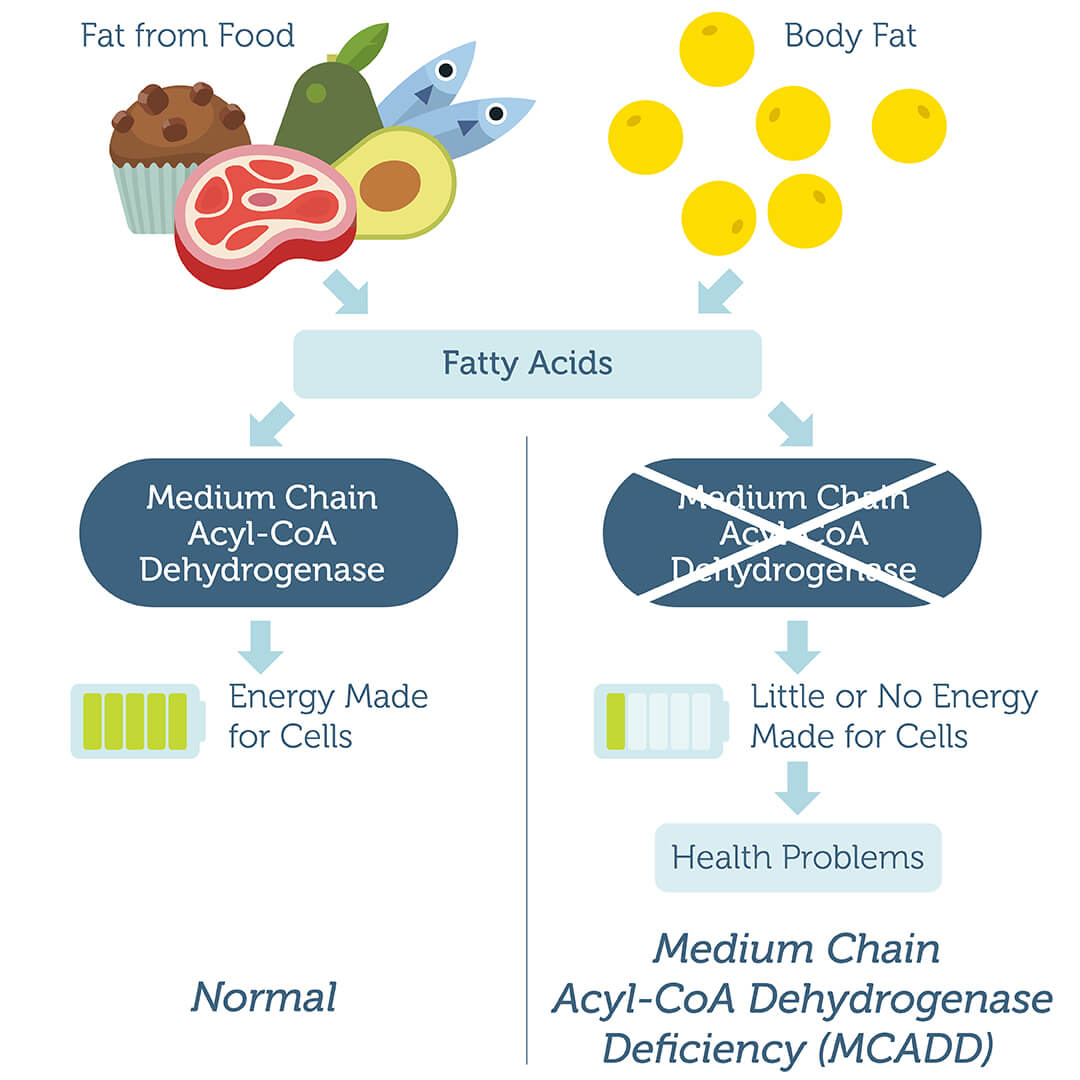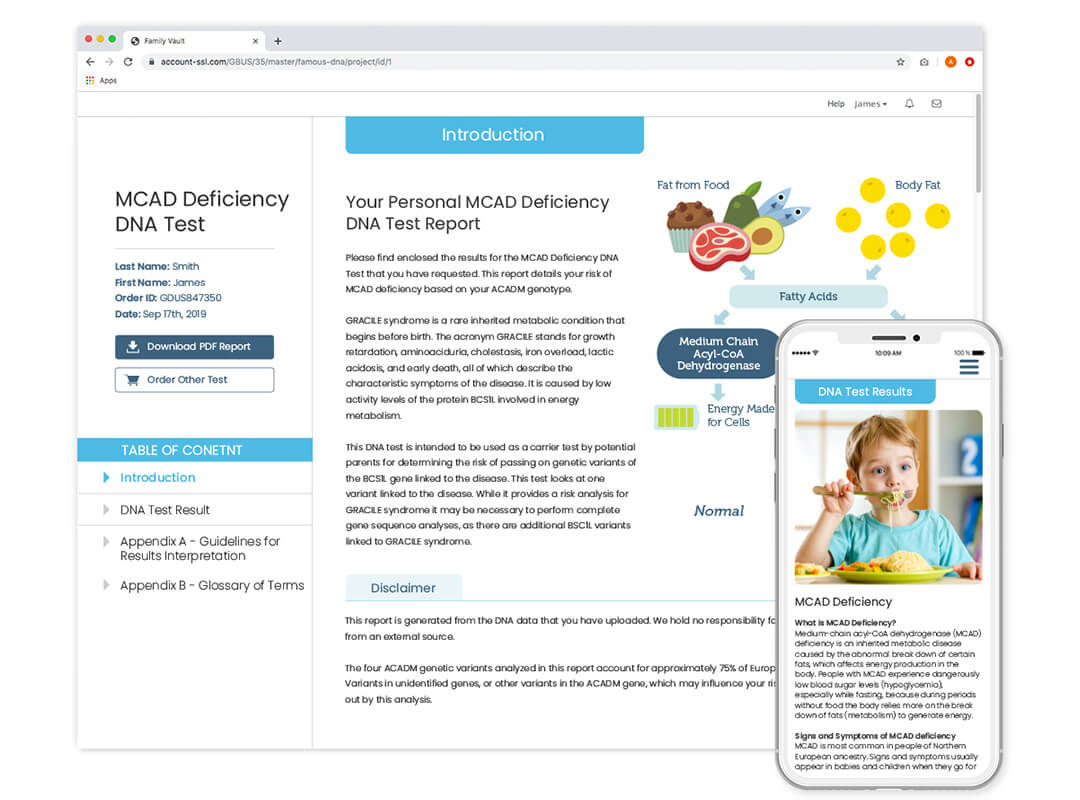MCAD Deficiency DNA
Are you a genetic carrier for MCAD deficiency? Find out with this DNA Test.
- Detects four variants of the ACADM gene linked to medium-chain acyl-CoA dehydrogenase deficiency
- Carrier screening test intended for couples who are planning to become pregnant
- Determine the risk of your child inheriting MCAD deficiency
- 100% private and confidential online results
Already have DNA markers? Sign in and upload your data to view results.
Need to take the DNA Test? Order our easy-to-use swab kit.
Detailed Description
D-bifunctional protein deficiency (DBP deficiency) is an inherited metabolic disorder that affects the body’s ability to breakdown fat from the diet. It is caused by low activity levels of the D-bifunctional enzyme found in the peroxisome, a sac-like compartment within the cell where dietary fats are broken down. Without properly functioning DBP enzyme, fatty acids accumulate inside cells leading to organ damage.
Signs and symptoms of the disease may vary based on the activity levels of the DBP enzyme. Most newborns present with characteristic symptoms, which include hypotonia (low muscle tone) and seizures in the first month of life.
Take this test to find out whether you are a genetic carrier of ACADM variants and are at risk of passing it to your children. This is intended to be a carrier screening test for couples who are considering to start a family.

The Genetics
MCAD deficiency is caused by genetic variation in the ACADM gene. People with genetic variants produce a MCAD enzyme with lower activity, thereby affecting the ability to break down medium chain fatty acids. This leads a reduction in energy production and medium-chain fatty acids build up.
It is inherited in an autosomal recessive pattern, which means two defective copies of the ACASM gene must be inherited in order for the disease to manifest.

Variant Tested
This test looks at four genetic variants of ACADM linked to MCAD deficiency in people of European descent.
- rs121434280 C (Y42H)
- rs77931234 G (K304E)
- rs373715782 T (R181C)
- rs121434281 T (S220L)
Understanding your carrier status for these variants will help you understand the risk of passing it to your children.
While this test provides a risk analysis for variants common in people of European descent and detect approximately 75% of European carriers, complete gene sequence analysis may be necessary to identify additional variants associated with MCAD deficiency in other ethnicities.
Signs & Symptoms of MCAD Deficiency
Following signs and symptoms are usually seen in affected infants and children
- Very low blood sugar (hypoglycemia)
- Lethargy
- Vomiting
- Seizures
- Breathing difficulties
- Organ damage (particularly liver and brain) due to build up of medium-chain fatty acids
- Severe episodes can lead to coma and death
How It Works
Step 1: Sign up for a free Genebase account.
Step 2: Upload your DNA markers to Genebase.
Step 3: Login to your account to access your results when they are ready.


